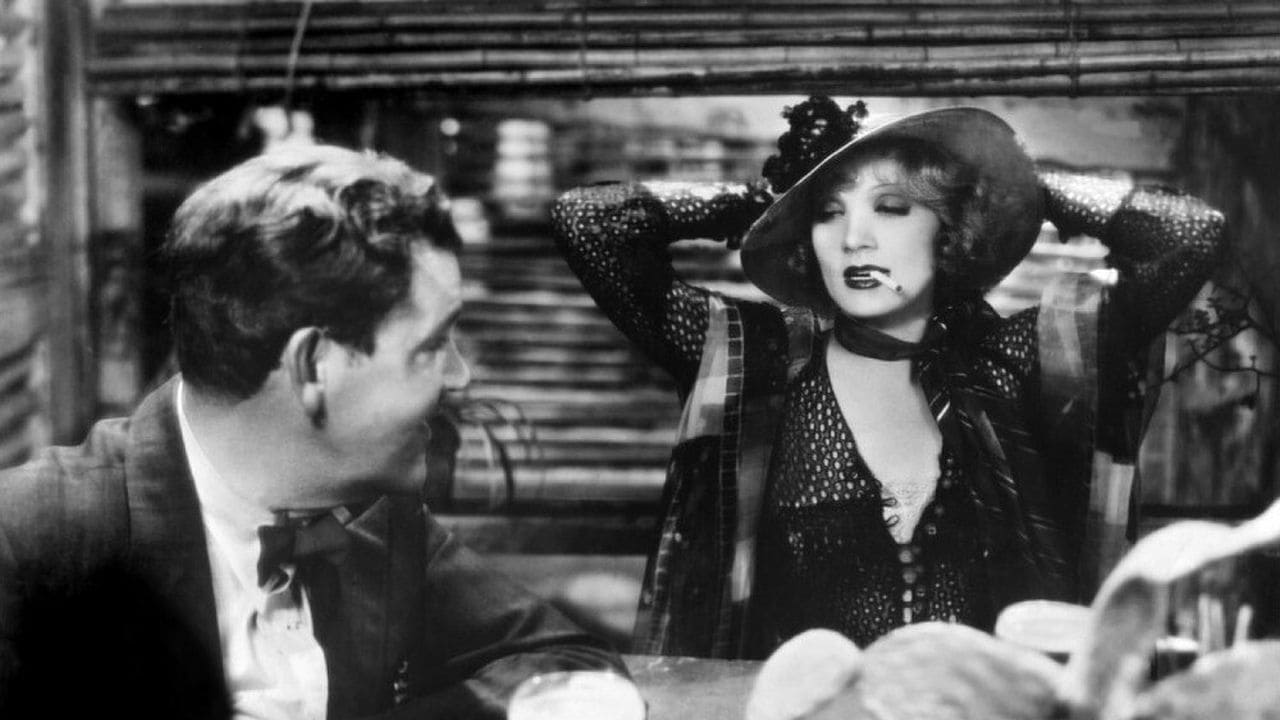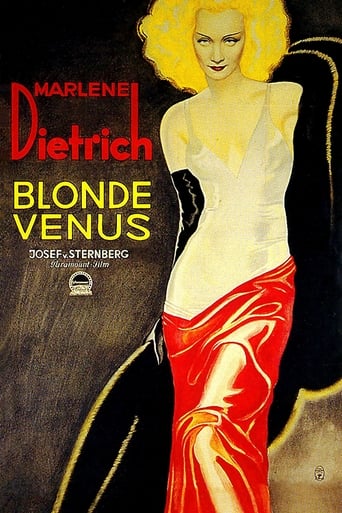



People are voting emotionally.
Charming and brutal
Brilliant and touching
Through painfully honest and emotional moments, the movie becomes irresistibly relatable
View MoreJosef Von Sternberg's films of the 1930s are some of the most unique ever made. Sternberg was one of the most promising directors of the 1920s, but of course there was a paradigm shift with the advent of sound near the end of the decade, causing most filmmakers to abandon the experimental cinematic techniques so instrumental to the most successful silent films. Dialogue heavy films in which visuals took a backseat to plot and characterization became the norm. Sternberg seems to have been the only director to integrate sound successfully into his normal filmmaking routine without completely changing his style. Thus, in a film like Blonde Venus Sternberg still employed his slick editing techniques and Impressionistic camera tricks such as superimpositions. As simple as this sounds, it's quite off-putting to see a film like this when expecting the relatively primitive filmmaking techniques of the popular films of the 1930s. While Sternberg naturally evolved his style and progressed through the '30s in his own way, nearly every other filmmaker regressed to a more stagy film style. It's for this reason that Sternberg's films of the 1930s look so different: this is an offshoot of film evolution that unfortunately didn't have much influence on contemporary films; what you see when you watch Sternberg's films from this era is the style that films could have moved toward if the retreat to the old dramatic forms hadn't occurred. So, what makes Blonde Venus off-putting? Well, in spite of its relative lack of length (it's only ninety-minutes long) a lot of ground is covered in this film. There's a love triangle established early on which is resolved almost before it's fully formed and the plot doesn't slow down as a character goes from riches to rags and becomes a fugitive from justice in just a few moments; in fact, things just speed up from there and in twenty minutes or so there's a manhunt that stretches across several states, several close brushes with the law, and a dramatic showdown about child custody before the character hits bottom, heads to Europe, and quickly vaults back to riches again. This is the sort of plot that would never be told in less than twice this amount of time today, in fact I've seen entire seasons of television shows with less plot packed into them. Throughout all this, Sternberg's visual panache guarantees the viewer's interest and, at the same time, narrative coherence is easily maintained. There's even some good thematic material here about self-sacrifice and women's roles in the period. Like most of Sternberg's films from this decade, Blonde Venus offers an embarrassment of riches when compared to its contemporaries in spite of a pacing style that will be difficult for viewers used to (non- Sternberg) films for this era to adjust to. For a viewer with a bit of context, this is a wonderful glimpse at what film could have been.
View MoreWe do not know, that moment in history, we lost the direction and the feeling of having made some of the worst paradigms we have taken as a way of life. How many times will God - and even the devil himself - his brow contracted a smile, to hear men say: "This is mine," "She's mine","He's mine." ¿When will we understand that all have diminishing the love? If it restricts your freedom, not for your sake but because I need you... and so is my love. ¡Who cares if you're not happy as long as I'm happy! I will compensate you somehow. ¡What can I do if the world is full of interesting people! But, as you're concerned, the only (only) that may be interested, is me. You leave or I'll kill you if you are unfaithful... but do you know? I, too, how many times I've wanted to tell you the infidel!... And I would confess that sometimes I have been: thinking (million times!), word (hundreds of times!) and work (a few times).On a planet with millions of beautiful and interesting beings, ¿how one person belong to?, ¿How do swear that I will be yours? ¡Illusory promises! We are a couple standing in a bucket full of lies. Problems, tantrums, separation... raged in the day to day because of the possession. ¿What is that you can own? Become well this question. ¿Someone I can have?, ¿I would allow someone who owns me? Every time you flow, and generate ideas, feelings, words, actions... ¿Can someone "own" (have), except occasionally, all you are? "Blonde Venus" is a nice movie that I have moved to these reflections. It is the story of a woman who loves her husband, but, wanting to help, she meets another man who is sexy, gallant, generous, rich, and no possessiveness. He gives all of himself and is happy to have her what she wants to give. And when he feels she wants to return to the other, he walks away. No calls, no require, no charges... just accept. THIS IS CALLED LOVE! This is how he truly loves.Legitimate husband, in contrast, takes revenge on her, leaves and stalks to remove your child, you bitter and puts on a face an opportunistic world that becomes cold as an iceberg. And when it succeeds legitimacy, one feels that won the absurd laws of society, but also feels that lost love. We grant the benefit of the doubt because there is no reconciliation and forgiveness. Let us hope that love is born again. The Dietrich strikes a role that impacts and moving our fibers. Runs her life and gives an example of character and resilience. And, as usual, the teacher Josef von Sternberg delights with a proposal not exotic, sensual, irreverent, and scenarios perfectly romantic decorating adventure.This film is making history. Do not miss it.
View MoreWhile hiking in the Black Forest with a group of students, the American chemist Ned Faraday (Herbert Marshall) meets the German artist Helen (Marlene Dietrich) and sooner they get married. Years later, living in New York and having a boy, Johnny (Dickie Moore), Ned gets sick, poisoned by twelve years of exposition to radium in his experiments. However, his doctor tells him that In Dresden he would have a chance of healing, but the treatment would cost the fortune of US$ 1,500.00. Helen decides to work in a night-club under the pseudonym of Blonde Venus to raise some money for his travel. When she meets the playboy millionaire Nick Townsend (Cary Grant), she decides to ask for money to have an affair with him. Ned goes to Germany and Helen becomes Nick's mistress. When her cured husband returns fifteen days ahead the schedule, he finds that she had been unfaithful to him. Ned decides to take Johnny from Helen, forcing her to runaway with their son with the police in their tail.The melodramatic "Blonde Venus" is not a bad movie, with a great performance of Marlene Dietrich. The story of a mother that prostitutes with a millionaire in a post-Depression period to raise money to save the life of her husband is not explicit, based on the moral values of those years, but very clear when she gets US$ 300,00 from Nick after their first encounter. Unfortunately, the moralist and corny conclusion is ridiculous, spoiling the story. My vote is six.Title (Brazil): "A Vênus Loira" ("The Blonde Venus")
View MoreAs testament to her large array of skills, yet I have seen it only in this film, and never discussed by anyone elsewhere:As opposed to the low alto voice she used in 'Destry Rides Again' and all other performances I am aware of, in a very early, short scene in this movie, just after she has met her future husband Herbert Marshall, she is riding back to town from swimming with her friends, when she breaks out in a very short song with an amazingly beautiful, operatic-quality SOPRANO voice.Why she chose to always sing in the lower, more speaking-quality voice later in her career, when I assume she could have shown off her vocal range, has always intrigued me.
View More